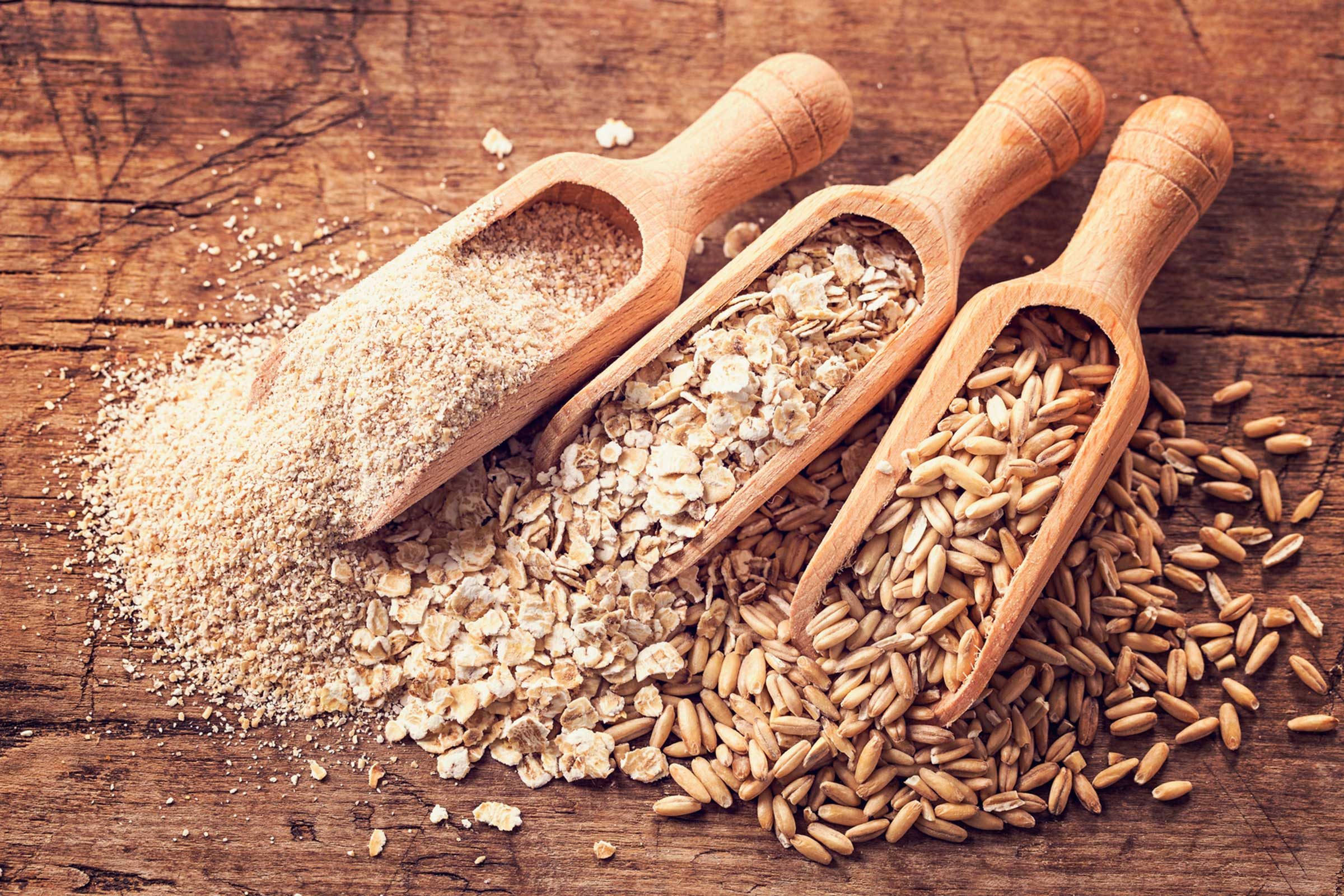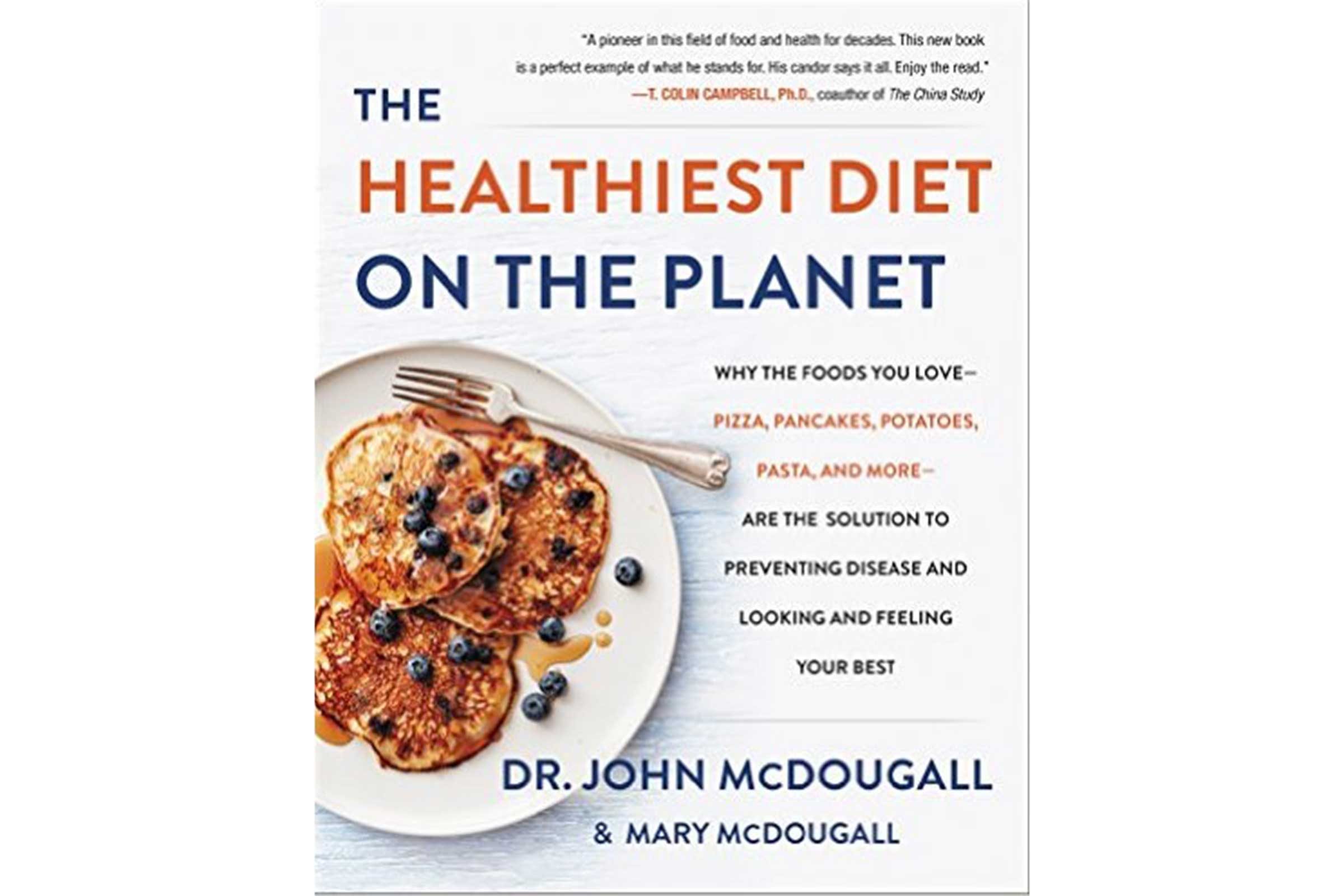
Myth: Carbs leave you drained and foggy-brained
Truth: Every cell in the body uses carbohydrates for energy. When the brain can’t access the carb glucose for energy—like in a low-carb diet—it turns to ketones from fats instead. But a 1995 study in the International Journal of Obesity and Related Metabolic Disorders found that burning ketones instead of glucose leads to impaired brain function. Just like athletes load up on carbs before an event, you can turn to carbs several times a day to keep your energy up in your hectic life, Dr. McDougall says. These healthy snacks contain a moderate amount of carbs and can help stop cravings.

Myth: Avoiding gluten is healthy for everyone
Fact: Gluten-free products might be popping up more and more in grocery stores, but that doesn’t mean they’ll give you a health benefit. Less than 1 percent of people who eat a Western diet have celiac disease, McDougall’s research has found. Unless you have gluten intolerance, there’s no dietary need to eliminate gluten. And many people who have self-diagnosed themselves with a gluten intolerance could be wrong: Here are seven conditions that mimic gluten intolerance, for example. See your doctor and get a thorough exam before you cut out major food groups.

Myth: Cutting out gluten will help you lose weight
Fact: You might think that at the very least, the diet restrictions of going gluten-free would make people cut calories. But a 2012 study in the Journal of the American Dietetic Association found that after nixing gluten, almost 16 percent of people with celiac disease who were at a normal or low BMI moved to an overweight BMI class, and 22 percent of those who were already overweight gained weight.

Myth: Humans weren’t designed to eat starches
Fact: Several studies have shown human ancestors ate starches. A 2010 issue of Proceedings of the National Academy of Sciences reported that Europeans started processing starches, maybe ground into flour, 30,000 years ago or earlier. Research in a 2011 issue of the journal said starch grains have been found in Neanderthals’ skeletal teeth from 44,000 years ago. Hunter-gatherers did eat meat products, but most of their calories came from plants.

Myth: Carbs cause type 2 diabetes
Fact: You can eat bread without dooming yourself to type 2 diabetes. A 2013 article in Nutrition Journal found that people who ate whole grain-rich diets had a 20- to 30-percent reduced risk in developing type 2 diabetes. Dietary fat, on the other hand, can increase blood-sugar levels and cause people with type 1 diabetes to require more insulin, according to a 2013 study in Diabetes Care. Click here to find out good carbs for diabetes that nutritionists recommend.

Myth: Eating carbs will lead you to heart disease
Fact: Carbohydrates aren’t your heart’s enemy. People who ate low-carb diets had higher risk of mortality than those who ate more carbs, and cutting carbohydrates didn’t help protect against coronary heart disease, according to a 2013 report in the journal PLoS ONE. The study concluded that people avoiding carbs tend to replace them with animal-based protein, rather than plants and fiber. Don’t miss these silent signs of a heart attack.

Myth: Grains cause inflammation
Fact: Some say carbs are loaded with ingredients that cause inflammation that will in turn lead to practically every disease, but the research says otherwise. For instance, a study in the 2010 issue of the Journal of Nutrition found that women who ate more than a serving of whole grains were less likely than those who didn’t eat any to have moderate or elevated inflammation. Here are 16 more foods that fight inflammation.

Myth: Carbs raise blood sugar
Fact: A high-carb diet could actually reduce blood sugar levels. McDougall’s 2014 study printed in the Nutrition Journal found that participants who got 80 percent of their calories from carbs saw an average drop in blood sugar of 3 mg/dL. Here are great ways to switch to healthy carbs.

Want to read more?
Dr. McDougall is founder and director of the McDougall Program, a ten-day health program held in Santa Rosa, California, that he runs with his wife, Mary McDougall. To read more about his diet program, including recipes for pancakes and pizza, grab a copy of The Healthiest Diet on the Planet: Why the Foods You Love—Pizza, Pancakes, Potatoes, Pasta, and More—Are the Solution to Preventing Disease and Looking and Feeling Your Best.